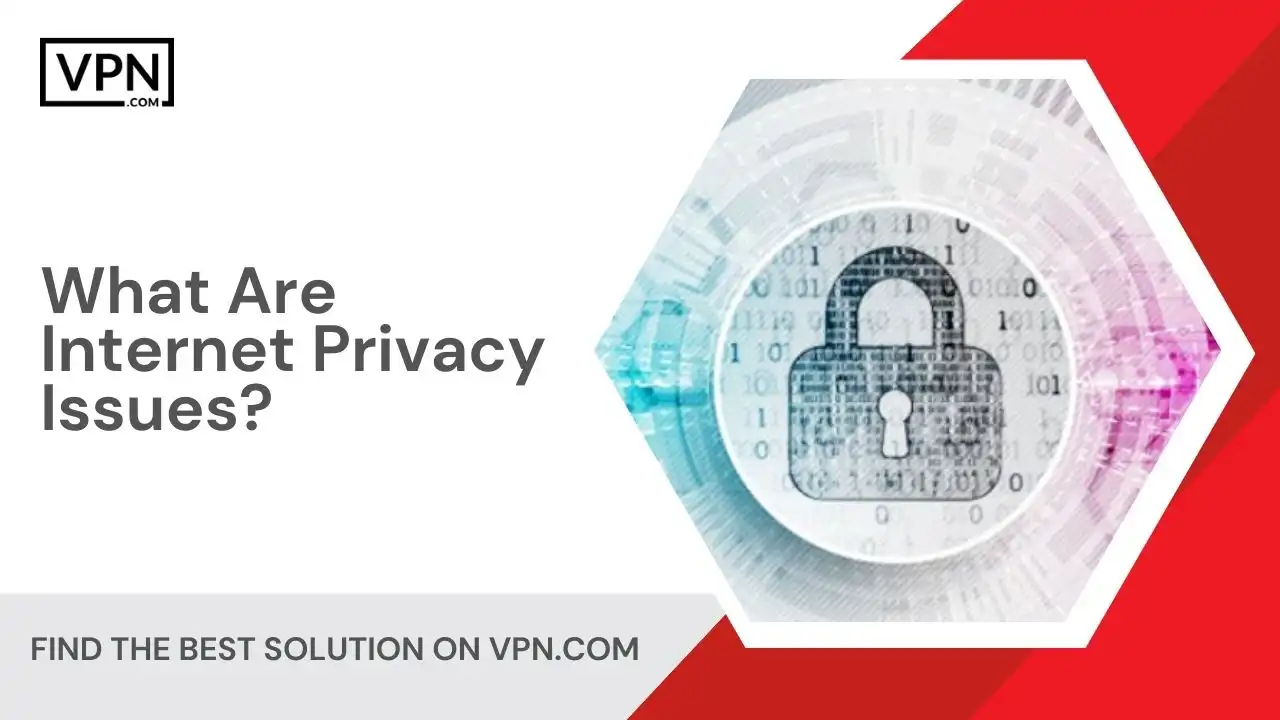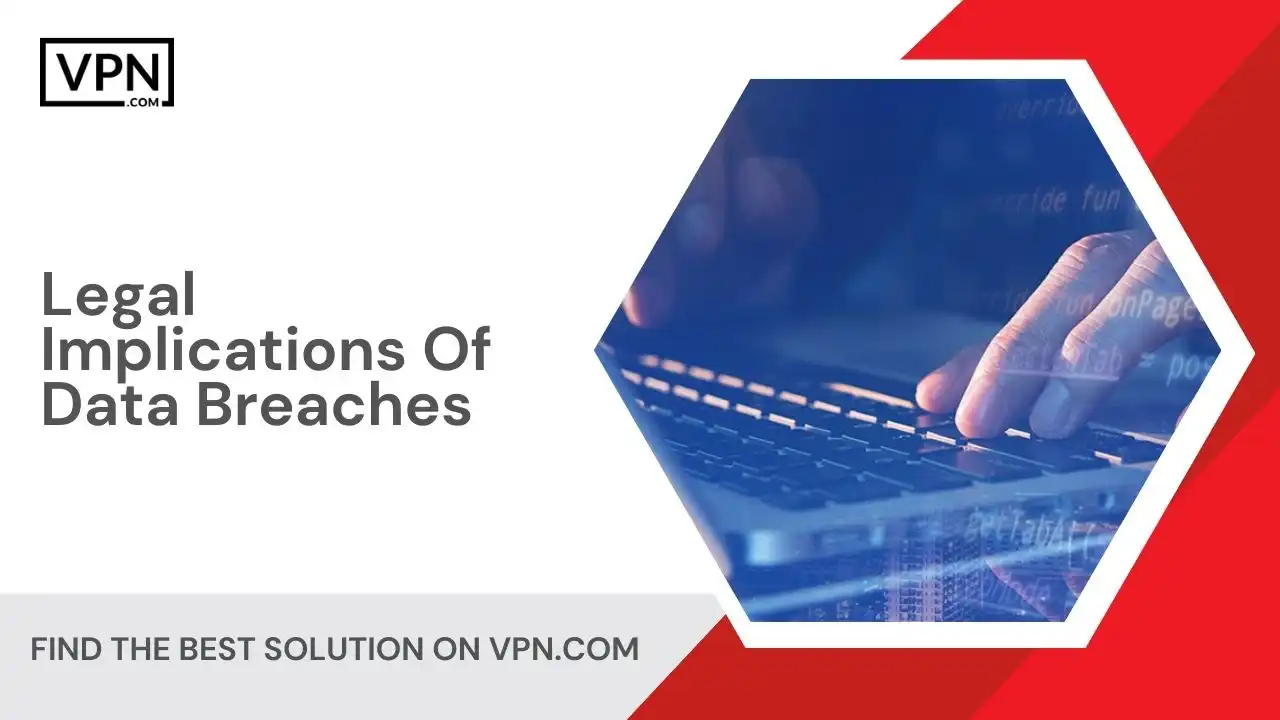What Are Internet Privacy Issues?

Internet privacy, a subset of data privacy, is a significant and multifaceted issue that has been a concern since the advent of large-scale computer sharing. It involves the right or mandate of personal privacy concerning the storage, repurposing, provision to third parties, and displaying information about oneself via the Internet. This topic encompasses many features, including but not limited to Data Security Threats and snooping, information mishandling, location tracking, and collecting and using personal data by companies and the government.
Internet privacy is primarily concerned with protecting user information, including personally identifiable information (PII) or non-PII information such as a site visitor’s behavior on a website. It also involves controlling the information an online user reveals about themselves and determining who can access that information.
Significance Of Internet Privacy

The significance of internet privacy is underscored by the fact that most Americans believe their online and offline activities are being tracked and monitored by companies and the government, with many expressing a lack of confidence in these entities’ data handling. Furthermore, the rise of the internet and mobile networks has made internet privacy a daily concern.
The issues surrounding internet privacy are numerous and complex. They include threats such as weak or reused passwords, oversharing, unsecured web browsing, cyber-attacks, and cyber risk assessment. Additionally, there are concerns about data mining for identity theft, privacy setting loopholes, and location settings on social media platforms.
The importance of internet privacy is further highlighted by the fact that in 2019, 73 percent of Internet-using households had significant concerns about online privacy and security risks. These concerns are particularly acute for marginalized or underserved communities, which can sometimes face higher risks of harm from the loss of privacy or misuse of data.
Internet privacy is a critical issue in today’s digital age, with far-reaching implications for individuals, businesses, and governments. It encompasses a wide range of features and concerns, underscoring the need for robust measures to protect user information and maintain the integrity of online interactions.

Get Started w/ NordVPN Today
- Top-rated VPN for OS unknown
- Ultra-fast speed in US in 2024
- Save 69% off with VPN.com Discount
- Plans starting at $2.99/month
GUARANTEE
6 Common Types OF Security Breaches

The following are the most common types of security breaches:
1. Data Mining for Identity Theft:
Scammers often use publicly available information on social media to target victims of identity theft. They can gather usernames, addresses, email addresses, and phone numbers to initiate phishing scams. With just an email address or phone number, a scammer can find more information, such as leaked passwords, Social Security numbers, and credit card numbers.
2. Privacy Setting Loopholes:
Social media accounts may not be as private as users think. For instance, if a user shares something with a friend who then reposts it, the friend’s friends can also see the information. The original user’s reposted information is now in front of a completely different audience. Even closed groups may not be completely private because postings, including comments, can be searchable.
3. Location Settings:
Location settings on social media platforms can track user whereabouts, enabling these platforms to collect data. Even if an account is private, advertisers and scammers can get sensitive data, such as status updates, religious beliefs, profile information, and location data.
4. Harassment and Cyberbullying:
Social media platforms can be a breeding ground for harassment and cyberbullying. These issues can lead to emotional distress and other severe consequences for the victims.
5. Hacking and Account Takeovers:
Cybercriminals can hack into social media accounts, leading to unauthorized activity and potential misuse of personal information. This can result in identity theft, financial loss, and other serious consequences.
6. Third-Party Data Sharing:
Social media platforms often share user data with third-party companies, which can lead to privacy breaches. This data can include personal identifiers, status updates, religious beliefs, location data, and engagement on social media, such as likes, shares, or comments.
To protect against these privacy issues, users should be cautious about the information they share on social media, regularly review and update their privacy settings, be mindful of location settings, and use strong, unique passwords. Additionally, they should be wary of potential scams and phishing attempts and consider using tools like virtual private networks (VPNs) to protect their privacy further.
Consequences Of Internet Privacy Breaches
Internet privacy breaches can have severe consequences for both individuals and organizations.
Consequences Of Internet Privacy Breaches For Individuals
For individuals, the impact of a data breach can be devastating. It can lead to financial loss, damage to credit scores, and emotional distress. Individuals may have to spend significant time sorting through their finances, canceling credit cards, and changing passwords to secure their personal information. There’s also the potential for identity theft or fraud and the long-term implications of personal information being in the hands of cybercriminals. This can impact trust in companies and organizations, affecting individuals’ willingness to participate in online activities such as shopping, banking, or social media.
Consequences Of Internet Privacy Breaches For Organizations
For organizations, data breaches can result in excessive fees, fines, security costs, and lost business revenue. They can cause significant financial losses, damage to reputation, and loss of trust. A breach involving customer or consumer information can cause a company’s stock to plummet. Data breaches can also lead to operational downtime, legal claims, regulatory fines, and a profound erosion of consumer trust. In some cases, a breach can significantly impact a company’s share price and valuation, as with Yahoo in 2013.
Moreover, organizations may face investigations from federal agencies like the FTC, SEC, and FCC, which can be costly and time-consuming. They may also be held responsible for failing to safeguard sensitive customer information, leading to potential civil liability.
In the long term, losing customer trust and a diminished reputation can be the most damaging consequence of a cybersecurity data breach. A 2019 Verizon study suggested that 69% of survey respondents would avoid a company that had suffered a data breach, and 29% of those surveyed would never visit that business again.
The consequences of internet privacy breaches are far-reaching and deeply impactful, affecting individuals and organizations significantly. They underscore the importance of robust measures to protect internet privacy and maintain the integrity of online interactions.

Get Started w/ NordVPN Today
- Top-rated VPN for OS unknown
- Ultra-fast speed in US in 2024
- Save 69% off with VPN.com Discount
- Plans starting at $2.99/month
GUARANTEE
Legal Implications Of Data Breaches

Data breaches can have significant legal implications for both individuals and organizations. The legal consequences can be multifaceted, involving regulatory penalties, civil lawsuits, and potential investigations by federal agencies.
Regular Penalties
Regulatory penalties can be imposed on organizations that fail to comply with data protection laws. For instance, regulations like the Health Insurance Portability and Accountability Act (HIPAA) in the U.S. and the General Data Protection Regulation (GDPR) in the EU have strict requirements for data protection and breach notification. Non-compliance can result in substantial fines.
Civil Lawsuits
Civil lawsuits are another potential legal consequence of data breaches. Affected individuals or groups may file lawsuits against the organization responsible for the breach, seeking compensation for damages such as financial loss, identity theft, and emotional distress. Class action lawsuits are also common in data breach cases, where a group of affected individuals collectively sue the responsible organization.
Investigations
Organizations may also face investigations from federal agencies like the Federal Trade Commission (FTC), Securities and Exchange Commission (SEC), and Federal Communications Commission (FCC) in the U.S. These investigations can be costly and time-consuming. They may result in additional penalties if the organization is found to have violated data protection laws and Internet Privacy.
Moreover, all 50 states in the U.S., along with the District of Columbia, Guam, Puerto Rico, and the Virgin Islands, have security breach notification laws.
These laws require businesses or governments to notify consumers or citizens if their personal information is breached. Failure to comply with these laws can result in legal penalties.
In addition to these direct legal consequences, data breaches can lead to significant reputational damage, indirectly leading to legal implications. For example, a company’s stock price may plummet following a data breach, potentially leading to shareholder lawsuits. The legal consequences of data breaches are significant and varied, underscoring the importance of robust data security measures and compliance with data protection laws.
Internet security breaches can have severe consequences, including financial loss, damage to reputation, and legal implications. Therefore, it’s crucial to implement robust measures to prevent such breaches. Here are some best practices for avoiding Internet security breaches:
What Are The Best Practices To Prevent Any Type Of Internet Security Breaches?

The following are the best practices for any internet security breach:
1. Inventory all data sets and identify locations of sensitive information
Knowing where sensitive data is stored is the first step in protecting it.
2. Use secure passwords and don’t reuse them
Strong, unique passwords are a fundamental part of data security. Password managers can help manage multiple complex passwords.
3. Implement Two-Factor or Multi-Factor Authentication (2FA/MFA)
This adds an extra layer of security by requiring users to verify their identity using a second factor, such as a text message or biometric data, in addition to their password.
4. Regularly update software and systems
Keeping up-to-date software, including operating systems and applications, ensures you have the latest security patches.
5. Use Anti-Virus Protection and other security software
Anti-virus software, firewalls, and anti-spyware software are essential to defend against data breaches.
6. Limit access to data and systems
Only necessary personnel should have access to sensitive data and systems.
7. Secure Wi-Fi networks
Ensure that your Wi-Fi network is encrypted, secured, and hidden. When using public Wi-Fi, use a VPN for a secure connection.
8. Regularly back up data:
Regular backups can help recover data in case of a breach.
9. Educate employees
Employees should be trained on data usage guidelines, password policies, and identifying common threats like phishing scams.
10. Monitor access and activity
Regular audits of who is accessing what data can help identify potential breaches.
11. Implement a crisis management and response plan
Having a plan in place can help mitigate damage in a breach.
12. Outsource security to a managed security service provider (MSSP)
An MSSP can provide continuous monitoring and management of your security systems, helping to detect and respond to threats more quickly.
Remember, no single measure can guarantee complete security. Therefore, combining these practices, tailored to your organization’s specific needs and risks, will provide the most robust protection against internet security breaches.
Social media, while offering numerous benefits, also presents several privacy issues that users should be aware of. Here are six common social media privacy issues:

Get Started w/ NordVPN Today
- Top-rated VPN for OS unknown
- Ultra-fast speed in US in 2024
- Save 69% off with VPN.com Discount
- Plans starting at $2.99/month
GUARANTEE
Conclusion
In conclusion, internet privacy is a complex and multifaceted issue with far-reaching implications. It encompasses many features, including spying and snooping, information mishandling, location tracking, and collecting and using personal data by companies and the government. The consequences of internet privacy breaches can be severe, affecting individuals and organizations significantly, leading to financial loss, damage to reputation, and legal implications. The legal consequences of data breaches can be multifaceted, involving regulatory penalties, civil lawsuits, and potential investigations by federal agencies.
To prevent such breaches, it’s crucial to implement robust measures, including secure passwords, regular software updates, anti-virus protection, limited access to data, and regular data backups. While offering numerous benefits, social media also presents several internet privacy issues, including data mining for identity theft, privacy setting loopholes, location settings, harassment and cyberbullying, hacking and account takeovers, and third-party data sharing other internet privacy issues.
Therefore, users must be cautious about the information they share on social media, regularly review and update their privacy settings, and use strong, unique passwords. Maintaining internet privacy is a critical issue in the digital age that requires continuous attention and robust measures.
Customer Reviews for NordVPN: In-Depth Review, Tests, and Stats

Connection issues with MLB.TV
May, 2 2023

Prompt customer service
May, 6 2023

I would highly recommend
December, 15 2023



